Life After Sport: Former athletes share their experiences following retirement from elite sport (BBC Sport, State of Sport 2018)
More than half of former professional sportspeople have had concerns about their mental or emotional wellbeing since retiring, according to a new survey.
Retired athletes also told the BBC they "lose their identity" when they finish playing sport, experiencing "loss", "regret" and "devastation".
One in two ex-players of the 800 who responded to the Professional Players' Federation (PPF) survey did not feel in control of their lives within two years of finishing their careers.
The data was released to the BBC as part of a State of Sport investigation into life after sport.
"It is not unusual to hear players speak about feelings of mourning and grief when they retire," says Simon Taylor, chief executive of the PPF.
"Transition from professional sport can be a daunting prospect. The fact that retirement for sportsmen and women normally happens in their 30s only compounds the problems."
Key State of Sport findings:
- Many former sportspeople report a loss of identity after retiring and struggle to move on in life.
- The struggle to find a new purpose can lead to more serious problems such as depression, self-harm, addiction and financial problems.
- Even the best-prepared athletes struggle - retirement can be like a grieving process.
- A focus on success can hinder an athlete's prospects of planning for life after retirement.
- Sport has improved in recent years in the welfare and transition help it provides to athletes. Baroness Grey-Thompson's 2017 duty of care report as part of the UK Government's sport strategy, Sporting Future, recommended further steps.
- However, many people interviewed say more investment is needed in transition programmes and an independent national governing body.
Other notable responses from the survey:
- Only four in 10 of those who felt they had an issue with their mental and emotional wellbeing had sought help.
- Fewer than one in 10 former players had sought help for drug, alcohol or gambling problems.
- Only three in 10 former players were able to choose when they stopped playing professional sport.
- Just over half of respondents reported financial difficulties in the five years after stopping playing.
"The biggest thing I felt was a loss of identity and purpose," said Kelly Holmes, the double Olympic champion who retired in 2005, has spoken about the depression she had after her sporting career ended.
"Suddenly the structure, the people you call on, it all goes. But with no idea of what you want to do and who you want to be and that's a really lonely place and I got quite depressed around that time."
Taylor says: "All too often, so much of an athlete's life has been dedicated to their job that when it stops it can lead to a real loss of identity."
Loss, regret and devastation - the athletes' stories
Below are five of the most powerful stories we've heard from athletes dealing with life after sport:
'I don't want to be here'
World sevens player of the year in 2009, Ollie Phillips played top-flight rugby union for 14 years. His career ended with injury in 2015. He is now an ambassador the Rugby Players' Association's mental health awareness programme.
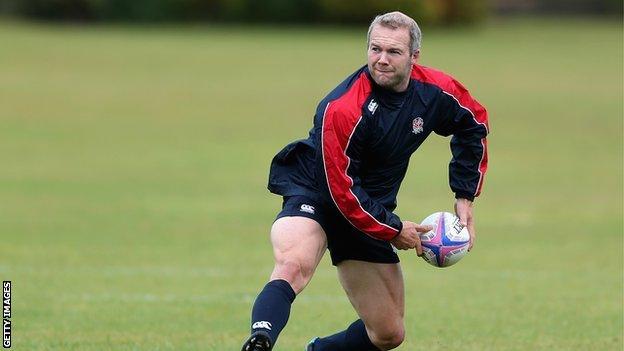
"Because I had to retire through injury, it felt as though I had been robbed of my rights and the dreams that I was hoping to achieve.
"Once I realised that 'right I am now not a rugby player any more', there was a really tough period.
"It's such a destructive experience on a personal level - everything is affected by it. That experience of feeling valued and adored. Suddenly you're not as good; you're not in the limelight.
"And as a result you chase highs and ego boosts. They give you a kick in the short term, but the highs are high and the lows are very low and you don't know how to get out of them.
"There were times when I looked at myself and thought, 'I don't want to be here'. I've probably accepted not being a sportsman but have I truly accepted that it's not me any more? Maybe not entirely."
'I had no money, I had nothing'
Rower Mark Hunter competed for Great Britain at three Olympic Games, winning gold in Beijing in 2008 and silver in London in 2012.
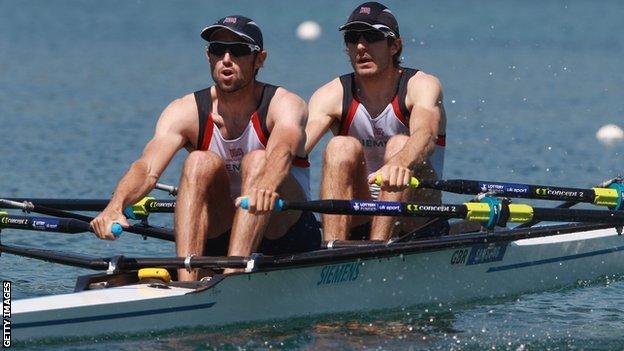
"It doesn't matter how good you are, how much money you earn - you have to learn to cope with that loss of purpose. Athletes think everyone cares about what you are doing but most people don't care until you are performing at the highest level.
"In Athens in 2004 I came last and that was my darkest point. I had no money, I had nothing. I used to drive down back roads thinking, 'if I crash I wouldn't care right now'. I didn't tell my parents but I was lucky I had so many friends around me to help me escape.
"I'd gone to the ultimate event and come last. We came last, the funding is cut and it's like 'get out'. It was club coaches who helped rebuild me.
"Losing the gold in London by a split-second was a big regret. It took me years to get over the loss. I had no help whatsoever from sport - after London the doors open, goodbye and it's like a conveyor belt of new talent coming through."
'It was like I had fallen off a cliff'
Great Britain hockey player Crista Cullen retired at 27 after winning a bronze medal at London 2012. Three years later, having not played hockey, she was given the chance to be part of the team for Rio 2016 and went on to win gold before retiring for a second time. She now works in conservation in Kenya.
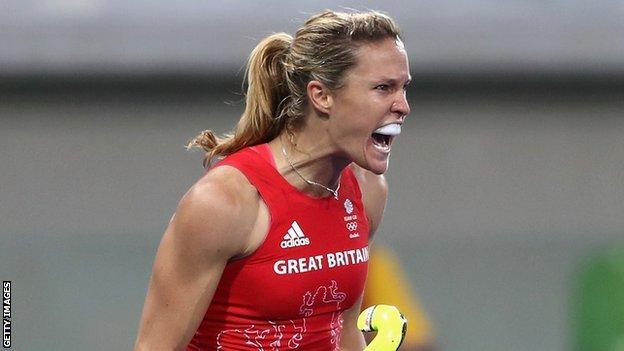
"The first time I retired I was 27 after the London Olympics. I thought 'home Olympics, this is the best thing I'll ever do'.
"I moved back home to Kenya. When I arrived there was this realisation that you're on your own. I felt lost. It was like I had fallen off a cliff.
"It took me six months to find my feet, but I was still looking for that identity.
"I hadn't appreciated the impact that transitioning out of elite sport would have on me. I'm an extrovert but still really struggled."
'You plummet to the bottom of the mountain'
Former England women's rugby union captain Catherine Spencer retired at the top of her game in 2011 but struggled with feelings of regret as she watched her former team-mates win the World Cup in 2014.
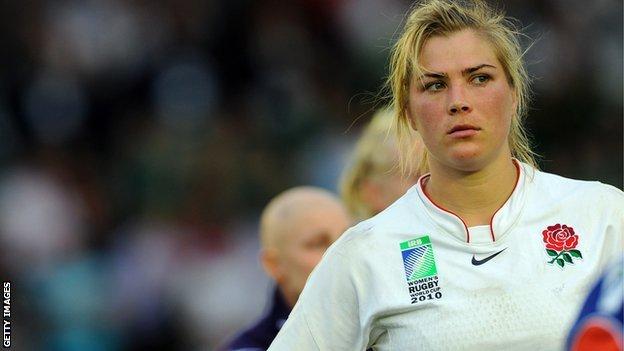
"I was at the top of my game - England captain, first choice, 63 caps, I knew what I was and what I was doing. I felt like I was at the top of my mountain.
"Then suddenly it feels as if you're not needed on the top of that mountain and you plummet to the bottom. You don't know where you're going or how to look up. Your whole being is almost taken away from you.
"I started sobbing [after England won the 2014 World Cup] I was happy that some of my best mates were out on the pitch, but I was absolutely devastated and gutted that this hadn't happened four years earlier."
'Having a plan that's come crashing to a halt - you're devastated'
Two-time Paralympic archery champion Danielle Brown's career came to an end in 2013, when her disability was reclassified and she was no longer able to compete.
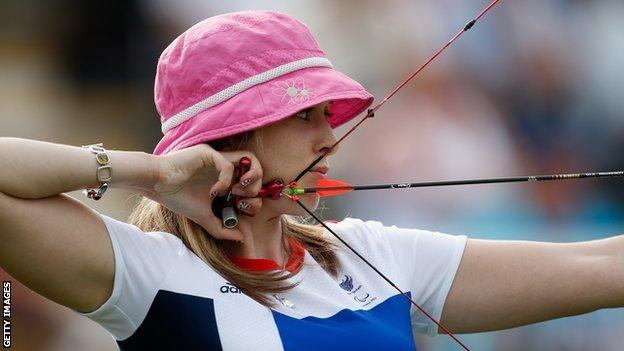
"When you are training your whole life revolves around winning medals. For that structure then to be taken away from me was devastating.
"I was given four months of funding from UK Sport because I had been on the programme seven years and I was given a paper on how to write a CV.
"Having the plan that has come crashing to a halt, you're devastated. You have no idea what you are or who you are, want you want to do, where you want to go."
Analysis - 'Retirement is the only inevitability in sport'
Professor David Lavallee is the world's first professor of duty of care in sport at Abertay University in Dundee. He is an expert in sport career development and transitions, with over 100 publications in the area.
The more people focus and develop a strong identity in what they are doing the more likely they are to perform, but this also presents a potential risk later on. It's a Faustian bargain that athletes often make to fulfil their dreams.
Retirement is the only inevitability in sport and represents a loss of somebody's resources - personal, material but, perhaps the hardest of all, the symbolic resources. Many athletes have an emotional attachment tied into what they do.
This research by the PPF is one of the largest ever studies to date looking at the impact of retirement from sport, and the findings are in line with previous research in the area.
The need for transition support has never been greater. Across professional sports in general, the provision of support to players has increased in recent years.
At the same time, however, several studies have shown that players sometimes feel reluctant to engage in career transition planning during their careers as they feel they should be focusing on their performance on the field instead.